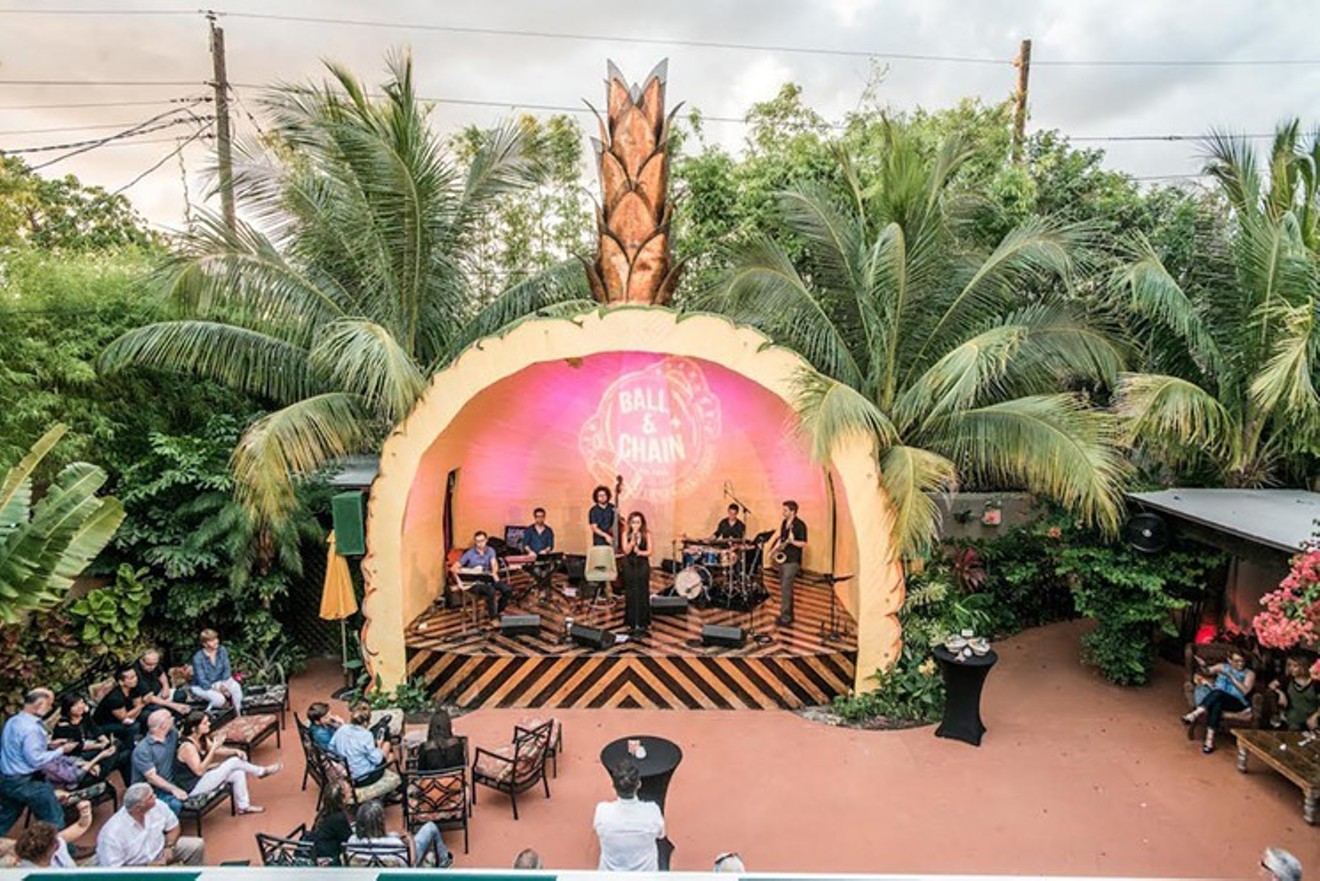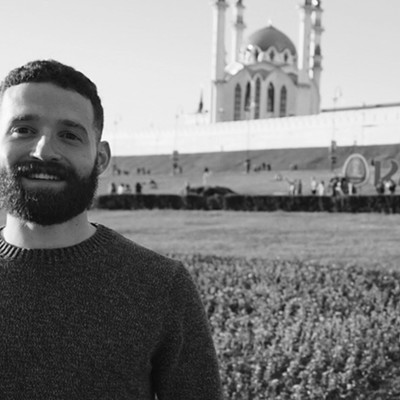Last Thursday, Carollo introduced a proposal to the city commission that would ban all outdoor music from 8 p.m. to 8 a.m. at businesses neighboring any sort of residential property. The proposal, which passed on a first reading with a 3-2 vote, would change the current regulations, which allow outdoor music until 11 p.m., after which time only low-volume ambient tunes are permitted. According to Carollo, the existing rule is far too lenient and has resulted in the "torture" of countless residents looking for peace and quiet at home.
Fuller, whose business model is built around live music, sees it differently.
"Not one citizen or business has requested this. This is simply being done in the self-interest of a vengeful commissioner," Fuller tells New Times. "He has no understanding of businesses, a disregard for his community, and, to be honest, he's just an idiot."
Carollo — who represents voters in Little Havana, Shenandoah, and The Roads in District 3 — did not respond to a request for comment by New Times.
The two votes against Carollo's proposal came from commissioners Ken Russell and Keon Hardemon, both of whom signaled concern over the effect the regulation would have on businesses in their districts. Russell's District 2 includes Coconut Grove, Brickell, downtown, and Edgewater, and Hardemon's District 5 covers Liberty City, Little Haiti, Overtown, Wynwood, and the Upper Eastside.
"At first, the proposal seems narrow, but it's actually incredibly broad. It hits a lot more businesses than what I think [Carollo] intended," Russell tells New Times.
According to Russell, at least five restaurants and bars in Coconut Grove would be affected by the new regulation.
"Businesses try to get along with residents. It's about managing relationships. To just get a broad-brush ban on all music feels like something from Footloose," Russell says.
In order to become part of city law, Carollo's ordinance must pass another commission vote on the item's second reading at a meeting November 17. The ordinance is not related to the COVID-19 pandemic and would become a permanent part of city code, which might have a crippling effect on Miami nightlife.
During Thursday's virtual meeting, Carollo bordered on conspiratorial during several exchanges with other commissioners regarding his proposal, claiming that code enforcement in Miami had been bought off by "alcohol barons" and boasting that he wasn't afraid to tackle that alleged corruption. The only way to deal with inconsistent enforcement, Carollo said, is to pass stricter regulation on outdoor noise specifically. (That position stands in contrast to recent attempts by the commission to encourage outdoor dining and ease curfews during the coronavirus pandemic.)Once again, the City of Miami Commission is attempting to end ALL outdoor music (no matter how quiet) after 8pm and REMOVE the exception for special events!!!
— Albert Maloof Berdellans III (@EDMsnob) October 23, 2020
This will kill Miami nightlife.
This ordinance PASSED first reading yesterday.
SPREAD THE WORD pic.twitter.com/MbwSQ9NKvO
Although Carollo repeatedly stressed that the noise ordinance would be citywide and without intention of targeting any specific business, he became hyper-specific during the commission's discussion, saying the new rules would only affect businesses with outdoor music in the rear of their premises. In fact, as currently written, the legislation makes no mention of where outdoor music is permitted on a property. It also does not say the neighboring properties must be exclusively residential but simply mentions any property with a "residential use," which could potentially include not just single-family homes but also large apartment buildings and mixed-use properties with commercial businesses on the ground floor.
One such business that would be affected is Ball & Chain, which is located in front of an apartment building off Calle Ocho. The bar is known for its live-music shows, held out back on its famous pineapple stage.
Fuller says that's no coincidence, as evidenced by the fact that Carollo was willing to limit the rule to businesses exactly like Ball & Chain.
"At this point, it's common knowledge that he's out to get us," says Fuller. "This isn't about helping people. This is about scoring a vendetta."
Fuller tells New Times that he would be willing to launch litigation in response to the proposal, should it pass a final vote on November 17. It wouldn't be his first time suing Carollo — in 2018, Fuller and his business partner, Martin Pinilla, filed a federal lawsuit against Carollo for allegedly engaging in an effort to defame and shut down their businesses in Little Havana. The case is still being fought in federal court.
Fuller says Carollo has targeted him and his businesses since 2017, when Fuller publicly supported Alfie Leon, who was challenging Carollo for a seat on the city commission.












